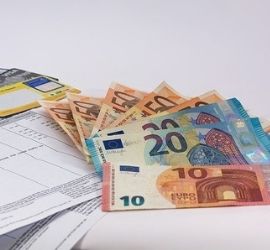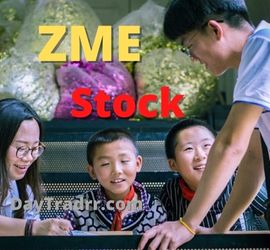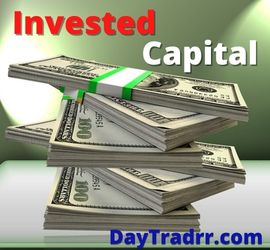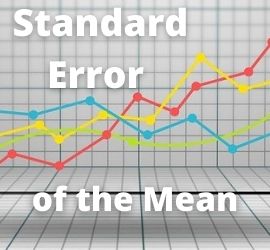What Is the Certainty Equivalent?
 A certainty equivalent is a guaranteed return that someone would accept now rather than taking a chance on a higher, but uncertain or risky return later. Put another way, we can say it is the lesser amount of money that one would accept to deny entering an event. This is in exchange for the possibility of winning an even larger amount of money by entering the event. In other words, the certainty equivalent is the guaranteed amount of cash that a person would consider as having the same amount of desirability as a risky asset.
A certainty equivalent is a guaranteed return that someone would accept now rather than taking a chance on a higher, but uncertain or risky return later. Put another way, we can say it is the lesser amount of money that one would accept to deny entering an event. This is in exchange for the possibility of winning an even larger amount of money by entering the event. In other words, the certainty equivalent is the guaranteed amount of cash that a person would consider as having the same amount of desirability as a risky asset.
Certainty is perfect knowledge that has total security from error. It is the state of being without doubt. Objectively defined, certainty is total continuity and validity of all foundational inquiry, to the highest degree of precision. Something is certain only if its validity is totally beyond doubt. Certainty Equivalent is the return or cash that an investor will accept today than the higher but uncertain return in the future. Or, we can say it is the certain or guaranteed cash that an investor would prefer instead of taking a risk for a larger amount than he may receive in the future.
Certainty Equivalent Example
What is the Certainty Equivalent Formula?
The Certainty Equivalent Formula for cash flow:
Certainty Equivalent Cash Flow = Expected Cash Flow / (1 + Risk Premium)
Here the Risk Premium is the risk-adjusted rate less than the risk-free rate. The risk-adjusted rate is the required rate of return on investment. You can also use this rate to discount a company’s cash flow to its present value.
As an example, assume that an investor has a choice to accept (Option A) $20,000 cash flow now. Or, choose another possibility that has the following expectations:
- 20% probability of getting $25,000
- 50% probability of getting $35,000
- 20% probability of getting $10,000
In this case, the other possibility is worth (20% x $25,000) + (50% x $35,000) + (20% x $10,000)
= $5,000 + $17,500 + $2,000 = $24,500
Now assume the risk-adjusted rate to be 12% and the risk-free rate to be 3%. The risk premium will be 9% (12% Less than 3%).
Equivalent Cash Flow = $24,500 / (1 + 9%) = $22,477
It means that to avoid taking a risk, an investor should accept any option that guarantees him or her $22,477 or more. So, in this case, an investor should accept the other option and pass on the $20,000 cash flow now.
What is Certainty Equivalent in Insurance?
Certainty Equivalent vs Risk Premium
The risk premium is defined as the additional return above and beyond the risk-free return anticipated by an investment. This premium is the amount of extra return an investor requires to take on additional risk. In essence, it rewards investors willing to bear a higher risk.
- risk-neutral Is a person whose certainty equivalent of any gamble or investment is just equal to its expected monetary value.
- A risk-averse person is one whose certainty equivalent of a gamble or investment is less than the gamble’s expected monetary value.
Suppose a game show participant may choose between two doors. Door #1 hides $10,000 and Door #2 hides $0. Now, suppose that the game show host offers the contestant $5,000 instead of choosing a door. The two options are choosing between the two doors, or taking a guaranteed $5000. Choosing one of the doors carries an expected value of $5000 (50% x $10,000). So, choosing a door or accepting the game show host’s offer provides the same expected value of $5000. So, no risk premium is being offered for choosing the doors rather than the guaranteed $5000.
Final Words
When you have a choice among various investments it is straightforward to choose the one which offers the highest certainty equivalent. This is because it is the one that is worth the most to you. But, when an investment is complicated, it becomes difficult to assess your certainty equivalent for it. There is great appeal to the risk-neutrality assumption. It allows you to identify your certainty equivalent with an expected monetary value. This metric makes your certainty equivalent straightforward to compute or estimate by simulation.
Up Next: CGL Meaning – What Is Commercial General Liability?
 CGL Meaning: Commercial general liability (CGL) is a type of liability insurance for businesses. It provides financial protection if you are held responsible for some of the most common accidents that can occur at a business. A policy provides coverage to a business for bodily injury, personal injury, and property damage caused by the business’s operations, products, or injuries that occur on the business’s premises. It also provides coverage if you are forced to defend an accusation of libel or slander.
CGL Meaning: Commercial general liability (CGL) is a type of liability insurance for businesses. It provides financial protection if you are held responsible for some of the most common accidents that can occur at a business. A policy provides coverage to a business for bodily injury, personal injury, and property damage caused by the business’s operations, products, or injuries that occur on the business’s premises. It also provides coverage if you are forced to defend an accusation of libel or slander.
Benefits are paid for actual damages and legal costs when the business is held legally responsible for bodily injury, property damage, or personal and advertising injury liability. If someone is injured on the premises, benefits may be paid even if the business is not held legally responsible. Commercial general liability is considered comprehensive business insurance, though it does not cover all risks a business may face.




